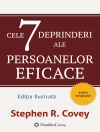‘This book harkens a new era of intimate partner violence intervention, one in which we are free to experiment with alternative ways to end intimate partner abuse.’
-Julia C. Babcock, Ph D
Professor, University of Houston, TX (From the Foreword)
‘The book you hold in your hands offers a variety of approaches intended to help abusive men change by utilizing the strengths and assets they already possess.’
– Chris Huffine, Psy D
Clinical Director
Allies in Change Counseling Center
Portland, OR (From the Foreword)
Strengths-based batterer intervention programs serve as a unique approach to intimate partner violence (IPV), building on individual strengths-not deficits-to help IPV offenders end their abusive lifestyles. This book assists counselors in providing IPV offenders with the skills, knowledge, and resources they need to permanently change their offending behavior.
The book discusses emerging theories and presents cutting-edge batterer intervention techniques that use positive psychology, such as solution-focused therapy, strengths-focused cognitive behavioral therapy, narrative therapy, and motivational interviewing.
Key Features:
- Chapters are conveniently organized by therapeutic model, each discussing the latest research, core concepts, objectives, and applications
- Case studies, both real-life and hypothetical, presenting quotes from and dialogues with offenders undergoing treatment
- Counselor tools, including exercises, questions, and assessment strategies that build on the offenders’ strengths and competencies
Family violence professionals must recognize the power their clients have to utilize their strengths, skills, talents, desires, and dreams. It is from these strengths that clients will be able to transform themselves into the people they want to be.
قائمة المحتويات
Section I: A Changing Paradigm
Chapter 1: The State of Batterer Intervention Programs: An Analytical Discussion
Chapter 2: Strengths-Based Batterer Intervention: A New Direction With a Different Paradigm
Section II: Theoretical Models for Strengths Based Batterers Intervention
Chapter 3: Accountability for change: Solution-Focused Treatment of Domestic Violence Offenders
Chapter 4: Motivational Interviewing for Intimate Partner Violence
Chapter 5: Narrative Therapy: Addressing masculinity in conversations with men who perpetrate violence
Chapter 6: Cognitive Behavioral Interventions for Partner Abusive Men
Chapter 7: Application of the Broaden-and-Build theory of positive emotions to intimate partner violence
Chapter 8: Applying the Good Lives Model to male perpetrators of domestic violence
Section III: Practical Tools and a Look Forward
Chapter 9: Application of Strengths Based Approaches
Chapter 10: Looking Forward
عن المؤلف
Catherine Simmons, Ph.D., L.C.S.W., is an Associate Professor at the University of Memphis, Department of Social Work.












